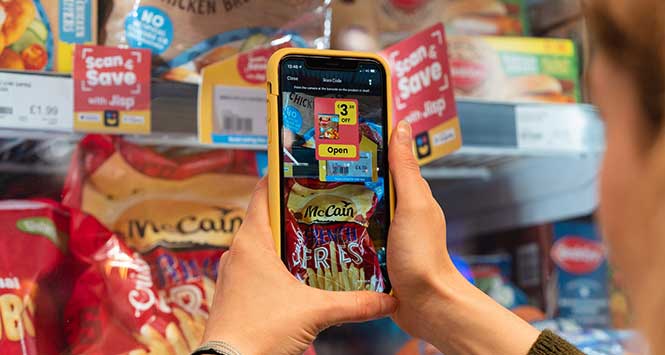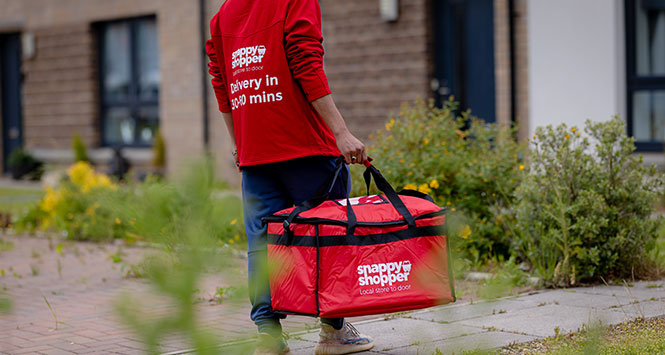Local, regional and national Scottish products can become the local retailer’s trump card when it comes to making your store a destination venue for shoppers.
By Antony Begley
Local retailers have long had a decent grasp of the importance of Scottish products. Most of us try to stock local products where we can but, if we’re honest, there’s only a select few retailers have really turned local sourcing into their USP. Retailers like Bruce and Donna Morgan of Best one at Brownlies in Biggar really understand the power of local sourcing. They’ve turned it into their key driver. They’re now famous for local sourcing.
And that’s why they won the Local Sourcing Award at this year’s SLR Rewards. But Bruce and Donna’s business is unusual. Most local retailers haven’t embraced provenance so enthusiastically and it’s easy to understand why: inconsistency of supply, high buy prices, poor quality packaging, no marketing spend, no bar codes, short sell by dates – the list goes on. We’ve faced these same problems ourselves at our Woodlands Local store in Falkirk, so it was with all of this washing around in mind that I watched this year’s SLR Rewards Seminar which took local sourcing as its theme.
A lot of great stuff came out of that day, but two messages in particular stuck with me from the Him! presentation given by Ed Sibley. One: This year’s CTP results showed that Scottish customers value community involvement more than the rest of the UK – a lot more; 8.1 out of 10 against an average of 6.1 – and the most important indicator for shoppers when judging the level of community involvement of their local store is…. selling locally sourced produce. Two: The word ‘local’ means very different things to different people. Let’s take these two points in turn.
Firstly, way over half of your shoppers – 56% – equate your store selling locally sourced products with you supporting the local community. Yes, you can provide free stock for local schools or sponsor the local football team, but it’s selling locally sourced products that is most important to your shoppers. It seems like an unlikely finding, but it makes sense when you think about it. And secondly, ‘local’ doesn’t always mean the same thing to everyone. The CTP results showed that, yes, 20% of shoppers think ‘local’ means within 10 miles of your store. But – and it’s a big but – 14% think ‘local’ means within 50 miles and 13% just think it means products sourced from within the UK. For good measure, the survey also found that 37% of Scottish shoppers believe locally sourced products are better quality than national branded equivalents and 58% of shoppers say they want to see more locally sourced products in their local store. This is a glaring opportunity for local retailers. Distribution dilemma One of the key reasons why retailers have shied away from locally sourced produce is the fact that there is no national distribution network for retailers to get their hands on the great products available from Scotland’s many producers.
But that too is now changing thanks to the launch of the Food and Drink Hub for Scotland, an organisation that also spoke at the SLR Rewards. Set up by a team including James Laws, the former Head of Local Sourcing at Sainsbury’s, the Hub is busy building an ever-growing distribution and logistics network in Scotland that will put great quality produce from over 100 Scottish producers big and small in the hands of local retailers across the country. The Hub offers a solution to one of the most difficult challenges facing the growth of local sourcing in Scotland and offers all local retailers instant access to a huge array of quality Scottish food and drink. Woodlands Local for one is joining The Hub’s network – and we have already worked hard to drive up the number of locally, regionally and nationally sourced stock on our shelves.
From Falkirk suppliers like the butchers Patricks of Camelon and coffee suppliers Caffia to the local farm where we source our eggs. We also stock a wide range of national produce from giants like AG Barr, Golden Casket and Hamlyns to smaller suppliers like Glencrest, Thomsons Coffee, Golden Cross Snacks and Nisha’s. “Prominently featuring competitively priced Scottish brands in Scottish stores makes good retail commercial sense on three levels,” says John Kerr of JFK Partnership which distributes many Scottish brands. “You are reducing your carbon footprint, you are generating emotional local buying appeal, and you’re helping develop Scotland’s reputation as a land of quality food and drink. “Sourcing and featuring Scottish products has been such a proven sales driver for the national multiples that all but one have a dedicated, Scottish based buying team, tasked with ensuring that every food and drink fixture includes relevant quality Scottish offerings, with their heritage clearly highlighted at the point of sale,” he adds. Drink to that A similar opportunity exists when it comes to drinks brands where Scottish products dominate the market. Peter Mooney, General Manager at McEwan’s Beer Company says: “To the Scottish drinker, products which are clearly and recognisably Scottish are extremely important. In fact, in the bottled ale sector alone, Scottish beer brands account for 62% of all sales value according to the latest IRI statistics. “This is a trend which seems set to continue as drinkers become more and more interested in the provenance and identity of their food and drink.” Mooney has recently helped spearhead a major rejuvenation of the McEwan’s beer brand which has a heritage spanning more than 150 years. This included a refresh of the design for the iconic McEwan’s Export.
Despite so much radical change in the beer market in recent times, McEwan’s still enjoys a loyal following today. The company has added to its core range with four new beers: McEwan’s Red, a chestnut red ale, two new premium bottled ales – McEwan’s Amber and Signature – and finally McEwan’s IPA. The results so far have been encouraging with McEwan’s beers growing faster within local retailing than anywhere else in the off-trade. The same IRI figures show that sales are up 29% in convenience, now accounting for 42.5% of the ale share. Another great Scottish brand making great progress in convenience is Buchanans, produced by Golden Casket, the same company that produces the Millions and £one-pounders brands.
Sandra Fisher from Golden Casket says: “We believe we offer the best confectionery around at the best value and we love being Scottish! The Buchanans range is proudly Scottish and your customers love it. We are Scotland’s largest manufacturer for a reason.” games for a laugh Of course it would be impossible not to mention Irn-Bru, the Scottish brand making the biggest splash of all in recent weeks with its sponsorship of the Commonwealth Games. Its Barr brand and Strathmore water have also been heavily promoted around the event. “Glasgow 2014 has focused worldwide attention on Scotland and its most popular products, providing a really strong platform for stockists of leading Scottish brands such as Irn-Bru and the Barr range,” says Adrian Troy, AG Barr’s Head of Marketing. “As the Games come to a close, retailers should stock up on well-loved Scottish brands as consumers will be looking to show their continued pride in Scotland. Retailers should ensure they stock the best food and drink Scotland has to offer to build on this momentum.”








